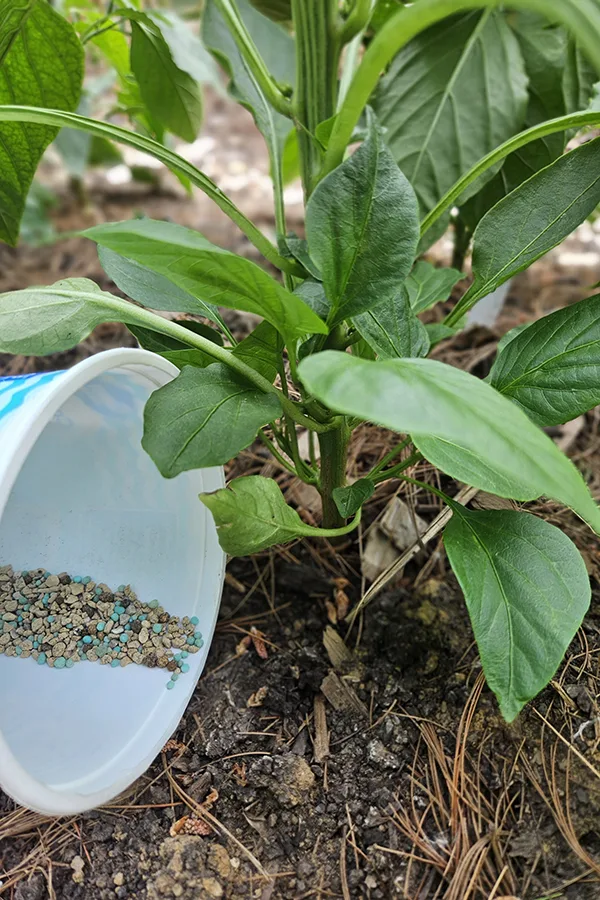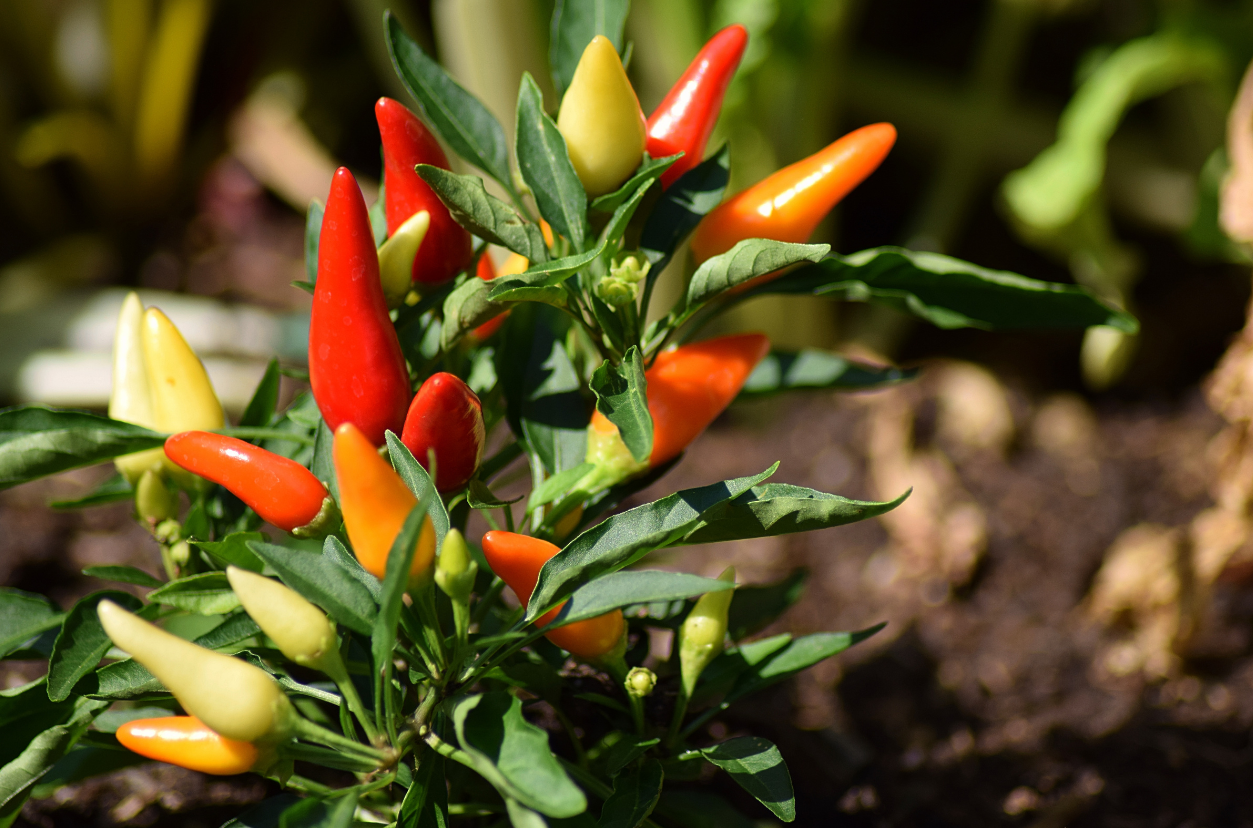Best Fertilizers for Peppers: Achieve Superior Results in Your Garden
Best Fertilizers for Peppers: Achieve Superior Results in Your Garden
Blog Article
Organic Vs. Synthetic Fertilizers: Which Is Best for Nurturing Healthy And Balanced Pepper Plants?
In the realm of nurturing healthy pepper plants, the selection between artificial and natural fertilizers stands as a pivotal decision with far-reaching effects. While both choices purpose to offer important nutrients to support plant growth, the nuances of their influence on the soil, plant health and wellness, and the environment stimulate an argument that mirrors throughout the horticulture community. Recognizing the distinctive benefits and potential risks of each plant food type is critical for pepper growers looking for to optimize their yields while preserving an eco-conscious and sustainable technique.
Benefits of Organic Fertilizers
Organic plant foods offer an environmentally-friendly and lasting approach to nourishing pepper plants, providing essential nutrients without using synthetic chemicals. These all-natural plant foods are obtained from organic sources such as garden compost, manure, bone dish, and seaweed, advertising dirt health and biodiversity. Unlike artificial plant foods, natural options launch nutrients slowly, ensuring a balanced and consistent supply for pepper plants to grow.
One significant advantage of natural fertilizers is their capacity to enhance dirt structure and water retention. By boosting dirt wellness, organic plant foods advertise valuable microbial task, which aids in nutrient uptake by pepper plants. Furthermore, natural fertilizers reduce the risk of chemical run-off, safeguarding water sources from pollution and securing the atmosphere.
In addition, natural plant foods add to long-lasting dirt fertility by promoting the development of useful dirt microorganisms. These organisms aid damage down raw material, launching nutrients in a form that is conveniently obtainable to pepper plants. best fertilizers for peppers. By fostering a healthy soil ecological community, organic plant foods sustain sustainable pepper growing methods that profit both plants and the environment
Drawbacks of Synthetic Plant Foods
Synthetic fertilizers, in contrast to their natural equivalents, present numerous disadvantages when used to nurture pepper plants, affecting both plant wellness and environmental sustainability. One major drawback of synthetic fertilizers is their propensity to seep nutrients from the dirt quickly.
Furthermore, the overuse of synthetic plant foods can contribute to water pollution. Excess plant foods not soaked up by plants can get rid of right into water bodies, causing eutrophication, where algae flowers deplete oxygen levels in the water, damaging marine life. In addition, artificial plant foods are generally originated from non-renewable resources, such as fossil gas, contributing to carbon discharges and environmental destruction throughout their manufacturing.
Nutrient Absorption Contrast
When comparing synthetic and natural plant foods in terms of nutrient absorption, organic fertilizers have the benefit of supplying an extra balanced and slow-release resource of nutrients. Organic plant foods have a range of macro and micronutrients that are not only useful for the plants however also promote healthy and balanced soil microbial activity, which helps in nutrient uptake.
In addition, organic fertilizers improve soil structure and water retention capacity, allowing pepper plants to accessibility nutrients much more successfully. This better soil top quality facilitates origin growth, making it possible for far better nutrient absorption. Synthetic fertilizers, although initially increasing plant growth due to their high nutrient focus, may hinder long-term nutrient absorption by degrading dirt wellness with time.
Ecological Impact Considerations

On the other hand, synthetic plant foods, although commonly more right away available and focused to plants, can have damaging impacts on the atmosphere otherwise used properly (best fertilizers for peppers). Their production requires high check out this site energy inputs, causing greenhouse gas discharges and adding to environment adjustment. In addition, the drainage of excess artificial fertilizers can infect water sources, resulting in eutrophication and hurting water ecological communities.
Ideal Plant Food Practices for Peppers
To achieve this, it is vital to follow best fertilizer techniques customized to the particular requirements of pepper plants. One crucial method is to do a soil examination prior to using any fertilizers.
Another essential technique is to feed pepper plants at the correct time. Typically, peppers gain from receiving fertilizer at planting and after that once again when they start to blossom. Over-fertilizing can bring about vitamins and mineral discrepancies and damage the plants, so it is essential to adhere to suggested application rates.
Additionally, choosing a well balanced plant food with an NPK ratio that suits pepper plants' needs is essential. Organic plant foods, such as compost or manure, can be view publisher site excellent selections as they release nutrients gradually and enhance dirt framework in time. However, synthetic fertilizers can supply a fast nutrient boost when needed. Ultimately, combining artificial and organic fertilizers deliberately can help nurture healthy and balanced pepper plants while minimizing environmental influence.
Final Thought

Organic fertilizers use a sustainable and environmentally-friendly method to nourishing pepper plants, supplying necessary nutrients without the usage of artificial chemicals. Unlike synthetic plant foods, natural options launch nutrients gradually, making sure a well balanced and steady supply for pepper plants to thrive.
Synthetic fertilizers, in contrast to their organic equivalents, present different drawbacks when used to nourish pepper plants, impacting both plant health and environmental sustainability. When contrasting organic and synthetic fertilizers in terms of nutrient absorption, organic plant home foods have the advantage of giving an extra well balanced and slow-release resource of nutrients.Furthermore, organic plant foods enhance soil framework and water retention capacity, permitting pepper plants to gain access to nutrients a lot more successfully.
Report this page